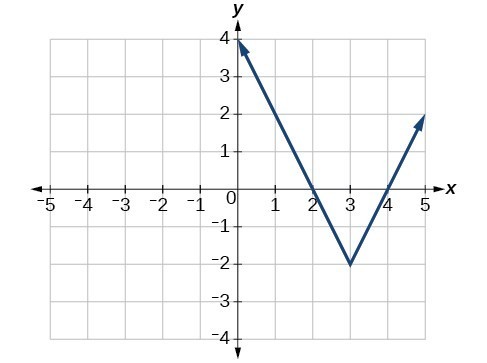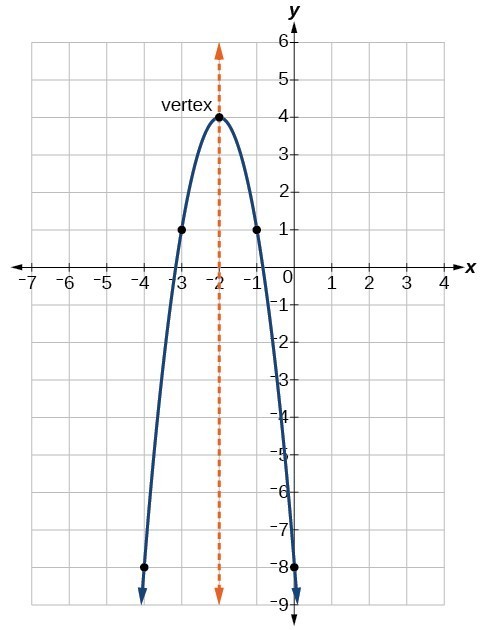Identify the Domain 
( - oo, oo)
Given the following function, find f(-2).
f(x)=x^2-3x+1
f(-2)=11
Given the following function, identify the vertex.
f(x)=|x-3|+2
(3,2)
Given the following function, identify the transformations.
f(x)=-(x-2)^2-3
Open down, right 2 units, down 3 units
Given the following function, identify the vertex.
f(x)=x^2+4x+15/4
(-2, -0.25)
Identify the range
[-2, oo)
Given the following functions, find (f-g)(x)
f(x)=3x^2+2x+1 and g(x)=4x-5
3x^2-2x+6
Given the following function, identify the transformations.
f(x)=|x+2|-1
Left 2, down 1.
Given the following function, identify the vertex and axis of symmetry.
f(x)=(x-4)^2+9
Vertex: (4,9) and AOS: x=4
Given the following function, identify the y-intercept.
f(x)=2x^2-5x-3/4
(0,-3/4)
Identify the Range 
(-oo, 4]
Given the following functions, find (f+g)(3)
f(x)=3x^2+2x+1 and g(x)=4x-5
41
Given the following function, identify the Domain and Range.
f(x)=|x+1|
D (-oo, oo) and R [0,oo)
Given the following function, Does the vertex represent a maximum or a minimum.
f(x)=-(x+1)^2+8
Maximum
Identify the axis of symmetry.
f(x)=x^2-14x+2
x=7
Identify the Domain
[-3,oo)
Given the following functions, find (f(g(1))
f(x)=3x^2+2x+1 and g(x)=4x-5
2
Given the following function, identify the axis of symmetry.
f(x)= 2|x-7|-3
x=7
Identify the y-intercept of the following function.
y= -(x+1)^2+8
(0,7)
Identify the transformations from the origin of the following function.
y=x^2-6x+3
Right 3 units, Down 6 units
Identify the Domain
[-4,4]
Given the following functions, find (f*g)(x)
f(x)=3x^2+2x+1 and g(x)=4x-5
12x^3-7x^2-6x-5
Draw a sketch of the following function.
f(x)=-2|x|+2
Identify the Domain and Range
f(x)= (x+5)^2+3
D: (-oo,oo) and R: [3,oo)
Identify the Domain and Range.
f(x)=-x^2-6x+3
D: (-oo,oo) and R: (-oo, 12]
